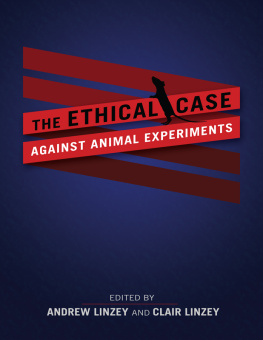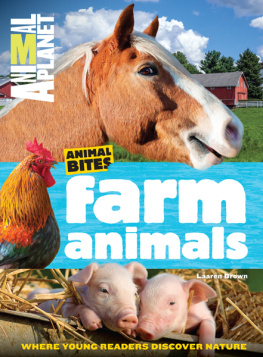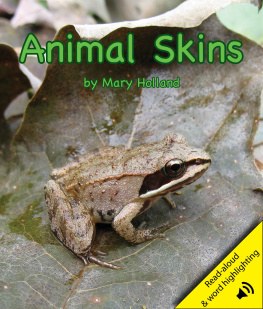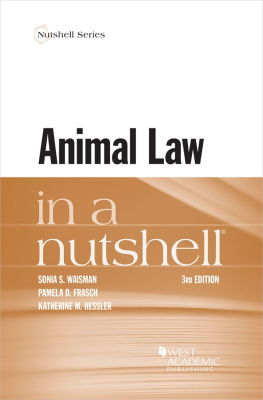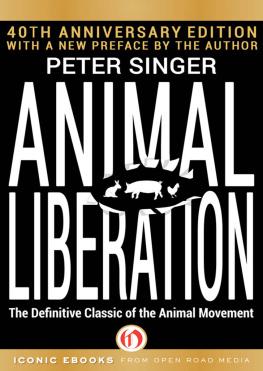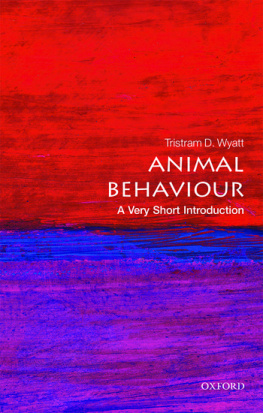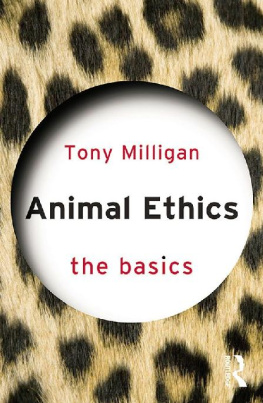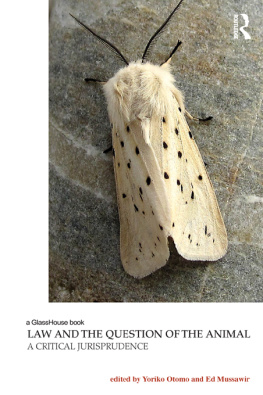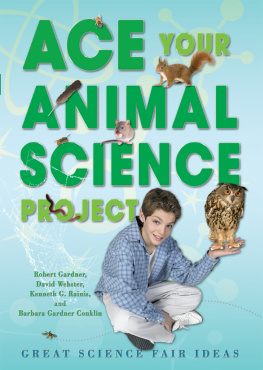THE ETHICAL CASE AGAINST ANIMAL EXPERIMENTS
THE ETHICAL CASE
AGAINST ANIMAL EXPERIMENTS
Edited by
ANDREW LINZEY and CLAIR LINZEY
2018 by the Board of Trustees
of the University of Illinois
All rights reserved
Library of Congress Control Number: 2017955135
ISBN 978-0-252-04132-7 (hardcover)
ISBN 978-0-252-08285-6 (paperback)
ISBN 978-0-252-09992-2 (e-book)
For Michelle Thew
for her vision and courage
Contents
| Andrew Linzey and Clair Linzey |
| A Report of the Working Group of the Oxford Centre for Animal Ethics |
| Simon Pulleyn |
| Robyn Hederman |
| John Rossi and Samual A. Garner |
| Kay Peggs |
| Katy D. Taylor |
| Robert Patrick Stone Lazo |
| Nedim C. Buyukmihci |
| Jarrod Bailey |
| Carlos Frederico Ramos de Jesus |
| Elizabeth Tyson |
| Kurt Remele |
THE ETHICAL CASE AGAINST ANIMAL EXPERIMENTS
INTRODUCTION
Oxford: The Home of Controversy about Animals
Andrew Linzey and Clair Linzey
I
IT IS THE RAREST THING in the world to hear a rational discussion of vivisection. So began the famous antivivisectionist tract Oxford don C. S. Lewis penned in 1947. Lewis did not mince his words: The victory of vivisection marks a great advance in the triumph of ruthless, non-moral utilitarianism over the old world of ethical law; a triumph in which we, as well as animals, are already the victims, and of which Dachau and Hiroshima mark the more recent achievements.
People are sometimes surprised to learn that such a noted Christian apologist was an ardent opponent of vivisection (or, as we say today, animal experimentation), but they shouldnt be. The initial nudge came from no less a person than Sir Richard W. Livingstone, then the vice chancellor of Oxford University. Livingstone drew the attention of his friend George R. Farnum, then president of the New England Anti-Vivisection Society, to Lewiss book The Problem of Pain.
The Problem of Pain was one of Lewiss most successful books and dealt at length with how the existence of suffering could be reconciled with belief in God. Lewis devoted a long chapter specifically to the problem of animal suffering and recognized that the suffering of innocent, uncomprehending, and vulnerable nonhuman creatures constituted a serious obstacle to Christian theism. That humans should add to the existing suffering in the animal world by deliberately inflicting pain was abhorrent to Lewis.
Lewiss interest in animals was not limited just to the theological problem; indeed, the issue of animals, their moral status, and their eternal destiny informed his personal life, his fiction, and his books for children. For example, in Perelandra, the villain is a scientist, Dr. Weston, who seeks to colonize other planets for the service of humankind and effectively deifies himself: I, Weston, am your God and your Devil.
II
Lewis did not write in a vacuum, of course. As recently as 2006, there were stormy protests about the establishment of the new animal lab in Oxford, leading to the establishment of Voice for Ethical Research at Oxford (VERO), with distinguished patrons such as the Nobel laureate John Coetzee. The campaign in opposition failed. The new Oxford lab was built.
To those who lived through those days, at least those with a sense of history, it all seemed eerily familiar. The establishment of the very first Oxford animal laboratory in 1885 also occasioned stormy protests both within and without the university. After Convocation (the universitys governing body) hastily passed a motion establishing a vivisection laboratory by only three votes, a circular was issued by the opposition ahead of the following Convocation on March 10, 1885. The new motion was to secure further funds for the physiological laboratory. The aim of the circular was to rally Convocation members to vote non placet. The circulars appeal was plainly a moral one and affected Oxfords standing:
It is hard to over-estimate the influence on popular opinion which is exerted by the attitude of a University such as ours. Will you then allow it to go forth to the world that Oxford sanctions the doctrine of the Physiologists that knowledge may justly be acquired at the cost of torturing Gods creatures?
The signatures on the circular (known as a flypost in British university speak) represented a roll call of some of Oxfords most distinguished names: John Ruskin, Slade Professor of Fine Art; Charles L. Dodgson (Lewis Carroll), student (meaning fellow) of Christ Church; S. R. Driver, Regius Professor of Hebrew; Edward King, Regius Professor of Pastoral Theology and also founder of St. Stephens House, Oxford, and subsequently bishop of Lincoln; E. A. Freeman, Regius Professor of Modern History; H. W. Chandler, Waynflete Professor of Moral and Metaphysical Philosophy; and E. B. Nicholson, Bodleys Librarian (librarian of the Bodleian library). To these were added four heads of colleges and many college fellows and tutors.
This sensitivity to animals had many antecedents. The renowned Oxford scientist Robert Boyle, despite his later experimental work on animals, ascribed reason to animals, holding that they partake of that Beame of Divinity as well as we and maintaining, I have ever esteemd Mercy to Beasts to be one of the Purest acts of Charity. Dodgson penned his own satirical tract Some Popular Fallacies about Vivisection in 1875. His last and thirteenth fallacythat the practice of vivisection will never be extended so as to include human subjectswas met with this mocking reply:
In other words that while science arrogates to herself the right of torturing at her pleasure the whole sentient creation[,] to man himself some inscrutable line is there drawn over which she will never venture to pass.
And when that day shall come, O my brother-man, you who claim for yourself and for me so proud an ancestrytracing our pedigree through the anthropomorphoid ape up to the primeval zoophytewhat potent spell have you in store to win exemption from the common doom? Will you represent to that grim spectre, as he gloats over you, scalpel in hand, the inalienable rights of man? He will tell you that this is merely a question of relative expediency,that, with so feeble a physique as yours, you have only to be thankful that natural selection has spared you so long. Will you reproach him with the needless torture he proposes to inflict upon you? He will smilingly assure you that the hypersthesia, which he hopes to induce, is in itself a most interesting phenomenon, deserving much patient study. Will you then, gathering up all your strength for one last desperate appeal, plead with him as with a fellow-man, and with an agonized cry for Mercy! seek to rouse some dormant spark of pity in that icy breast? Ask it rather of the nether mill-stone.
In the end, H. P. Liddon, the well-respected Dean Ireland Professor of the Exegesis of Holy Scripture (and a personal friend of Dodgson), was prevailed upon to lead the opposition,
The fallout was bitter and long-lasting. Ruskin resigned his Slade Chair, in his own words, following the vote endowing vivisection in the University.
On the national stage, the debate had already been lost. The 1876 Cruelty to Animals Act had legalized animal experiments in the United Kingdom, also despite fierce debate. This was the first legislation in the world explicitly legalizing animal testing. The leading person in the opposition was Frances Power Cobbe, who founded the Victoria Street Society for the Protection of Animals from Vivisection, later the National Anti-Vivisection Society, in 1875 and the British Union for the Abolition of Vivisection in 1898. She was closely associated with Manchester (now Harris Manchester) College, Oxford, and her spiritual mentor was principal James Martineau. But it was Christ Church graduate Lord Shaftesbury, the famous alumnus of humanitarian causes, who led the parliamentary battle. As Cobbe said after Lord Shaftesburys death, he never joined the Victory Street Society; it was the society which joined Lord Shaftesbury.

